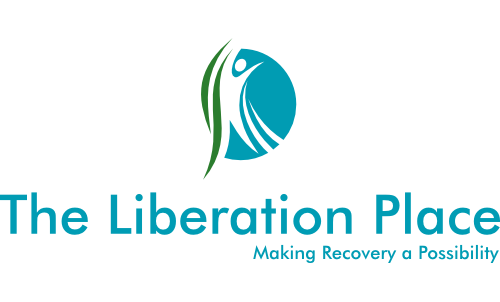ACCEPTS
One of the fundamental things we have to get in place when building a life that supports the type of behaviour change that we’re trying to put in place is living a life that’s built on a foundation routine and structure. This can send chills down the spine of some people as the last thing their system needs is to be told what to do. I was definitely one of these people in the early part of my journey, but once I accepted that this was an important thing for me to do, I quickly began to notice the benefits of living my life with this type of organization in place. For some of us, it can be difficult to build a life with routine and structure when we don’t know what there is for us to fill our time with. This is where the DBT Skill called ACCEPTS can really come into play.
A.C.C.E.P.T.S is a group of skills that, when put together in a constructive and organized way, is designed to help us develop a plan for what we can do to distract from, and avoid our overwhelming emotional experiences, in a healthy way. Looking at things from a dialectical perspective, there is absolutely nothing wrong with distracting and avoiding, as long as it is part of a balanced lifestyle. Sometimes we distract and avoid, and as we develop and grow, sometimes we sit with and work on our uncomfortable emotional experiences. Having an idea of how access these skills helps us to tolerate a negative emotion until we’re able to address and eventually resolve the emotional situation we’re facing. This skill follows the usual formula of mnemonics, and it stands for Activities, Contributing, Comparisons, Emotions, Push away, Thoughts, and Sensation.
“Once I accepted that this was an important thing for me to do, I quickly began to notice the benefits of living my life with this type of organization in place.”
~Steven Morris RP.
Developing a list that covers each of the specific areas within this skill gives us something to draw on when building our structured lifestyle, along with a list of skills to turn to when the proverbial hits the fan. Take some time to go through each one, and then begin to build your list of options that you can call upon when needed.
Activities:
First, it can be incredibly helpful to engage in different activities throughout the day. This list of activities can consist of pretty much just about any healthy activity that you can think of. Obviously, if you’re someone who works, goes to school, or has some sort of vocational activity that dominates your day, then this will take up a considerable amount of time in the routine and structure that you’re planning. If not, we can fill our time with as many things as we want, from reading to build our knowledge, cooking, going for a walk, calling a friend, learning a new language, or cleaning the house. Anything that keeps you busy and keeps your mind away from the negative emotion you have a difficult time experiencing will help.
If you develop a list that’s filled with a wide variety of things to do, when you finish one activity, you can simply move on to a new one. If you think about it, there is the potential for you having an incredibly productive day while you wait for a situation that you fear will be emotionally overwhelming for you to pass you by.
Contributing:
Giving service to others will often help to relieve emotional distress in more than one way. First, and act of service is an activity that, as we previously mentioned, will help get your mind off the problem at hand. Second, when we act in service of others, we tend to feel good about ourselves. This in itself can help to deal with stress and reduce the impact of any emotionally overwhelming situation we may be dealing with.
This act of service can be as big or as small as you want it to be, it’s just important to make sure we pay attention to how it feels when we do it. Doing something kind for another person, for example, helping to cook dinner, mowing the neighbor’s lawn, or baking cookies for a friend or relative, can distract you from your current situation. So while it would be great to participate in something huge like volunteering at the local food bank, or helping out at a local charity, an act of service can be something as simple as holding the door open for people as often as you can in a 24 hour period.
“This act of service can be as big or as small as you want it to be, it’s just important to make sure we pay attention to how it feels when we do it.”
~Steven Morris RP
Comparisons:
Try to keep the things that are happening in your life in the best perspective you possibly can. Comparisons is not necessarily about comparing to others, as this can often take us down a rabbit hole of self criticism that is challenging to cope with. Particularly if we spend our time on social media, looking at the life that our “friends” want us to think they’re living 100% of the time. Think about the progress you have made, notice the work you’re doing, and pay attention to how far you’ve come.
Was there a time in your life when you may have faced challenges that were considerably more difficult than you're facing today? The answer to this question may possibly be no, maybe this is the most intense and emotionally overwhelming situation you've ever experienced. If so, this would be a good time to jump back to the section describing the skill called TIPP. If that is the case, is there another person who has suffered more than you? Are you in a space that's considered to be safe for you right now, while in another part of the world there are people searching for food and shelter after some sort of a natural disaster?
The goal of this exercise is not to create more distressing emotional pain regarding your current situation. What we are trying to do is use this skill to add new and different perspectives to the situation you are experiencing right now. More often than not, most people who experience emotionally overwhelming situations, do so because they see things from an absolute point of view. When you provide different perspectives, it can be an effective skill to reduce the distress you are currently experiencing.
Emotions:
Most people don't realize that they have the power to invoke the opposite emotion to the one they’re currently experiencing in the distressing situation they’re in. We are what we put into our bodies, most people understand this when it comes to the food and drink we take in, but not with what we see and what we hear. If you are feeling anxious, try practicing a guided relaxation meditation for five to 10 minutes. From a textbook perspective, if you're feeling in a low mood, sad, or even lonely, have a list at hand that contains things you can watch or listen to that will lift your spirits, or even make you laugh.
It can be an incredibly empowering experience to realize that you are capable of adding a dose of the opposite emotion to the one you’re currently fighting with whenever you choose to do so. When you do, it can help to significantly reduce the intensity of the emotion you’re currently experiencing in a negative way. I personally have a list of music that can activate a wide variety of emotional experiences for me, movies I can watch that lift my spirits or motivate me to get off my ass, and a series of podcasts or live comedy performances that simply make me laugh.
“Think about the progress you have made, notice the work you’re doing, and pay attention to how far you’ve come.”
~Steven Morris RP.
Push away:
Sometimes it's completely ok to acknowledge that we cannot deal with something right now, it's ok to push the problem out of our mind for a temporary period of time. Pushing away our thoughts and feelings about a certain situation by distracting ourselves with other activities, thoughts, or even mindfulness is a short-term solution that is, for the most part, extremely effective. There is nothing wrong with keeping yourself busy to push away the emotion you are struggling with. This becomes an ineffective skill if it’s the one and only thing we do whenever we face an uncomfortable feeling. Constantly moving, doing, or engaging in things that keep us busy will eventually lead to burnout of some kind, and that’s not an effective thing for anyone.
If you do want to work on the emotion, and the story that’s activated it, but you simply don’t have the time to do it right now, you can even set a timer on your phone, on your computer, or on your tablet, to remind you to come back to the issue you pushed away later on. This is actually a really important thing to do when we start working with our childhood schema, and the parts of our personality that are reacting to these stories. Making sure we revisit the issue later on, to work with the part that was activated, builds trust in our ability to deal with emotions as our system starts to believe that the problem will be addressed later on, but between now and that time, we can simply relax and give ourselves permission to take a time out.
Thoughts:
Thoughts are incredibly powerful things, they can manufacture emotions, and alter our reality in a split second. When we're faced with an emotionally overwhelming situation, and our thoughts are ruminating on a particular subject that’s keeping the emotion alive, try replacing negative, anxious thoughts with activities that busy your mind, such as saying the alphabet backwards, doing a Sudoku puzzle, naming everything you can see that’s a specific colour or starts with a particular letter.
These distractions can often help avoid self destructive behavior until we're able to achieve a form of emotion regulation. Remember, our thoughts can be like a hamster on a wheel, continuously traveling in the same direction without ever getting anywhere. Distracting our mind with mentally challenging activities is often an effective way to stop this wheel from spinning.
“Thoughts are incredibly powerful things, they can manufacture emotions, and alter our reality in a split second.”
~Steven Morris RP.
Sensation:
When I started doing this type of work for myself, I didn’t have a clue what healthy Self-soothing even meant, let alone having an idea of how to use to calm my system. Self-soothing is all about using our senses to settle things down so learning how to activate any, or all, of your five senses to self sooth during times of distress, is an incredibly effective tool for many reasons. A typical self soothing behavior could be taking a warm bath with a lavender bath bomb and relaxing music, eating a comforting healthy snack, or watching your favorite TV show. Anything that appeals to your senses can help you cope with the current emotionally overwhelming situation you are experiencing.
Putting the skill into practice:
the dialectical behavior therapy skills available to you by using A.C.C.E.P.T.S will help you tolerate your emotional distress until the appropriate time arrives to resolve the situation. Once you're ready and able to address the problem you are facing head on, there are many other skills that can help you meet the unmet need you are trying to meet. It's important to have a well-rounded “toolbox” to dip into once you have learned what is helpful to conquer your emotional distress. In the PDF that's attached to the bottom of this page, there is a simple worksheet, intended to help you make a list of things you can do in each of the areas of this skill. Take the time to fill it out, if you’re struggling to come up with ideas, try brainstorming in group, using the internet to come up with ideas, or ask you support network what they do.
Download ACCEPTS PDF
Follow us on Social Media





